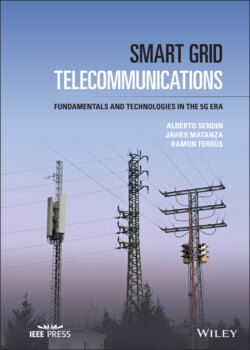Читать книгу Smart Grid Telecommunications - Ramon Ferrús - Страница 25
1.2.2.2 The Grid from a Regulatory Perspective
ОглавлениеRegulation is instrumental to understand electric power systems. In essence, Regulation [4] is the series of principles or rules to control individual and collective human behavior. Regulation, with or without the authority of law and with an ex ante intention, is used to control, direct, or manage an activity, organization, or system. From the legal perspective, regulation is a form of secondary legislation issued under the authority of primary legislation, whose effective application it is to secure.
Governments regulate industries to improve their performance, be it to guarantee that no agent goes against the common interests, to steer an industry's performance toward improving “general welfare,” to protect consumers, and to protect investors from the State. Regulation is implemented through the design of rules, the structuring of the industry, and the supervision of agents' behavior and industry performance.
The core underlying criterion supporting the regulation of electric power systems is the maximization of social and environmental welfare in the production and consumption of electric power. This involves several fundamental concerns. First, efforts should be devoted to minimizing the costs incurred in providing the service (both investment and recurring costs). Second, the quality of supply must also be satisfactory (including reliability – security in short‐term operation, and adequacy for long‐term evolution, and “product” quality factors). Third, sustainable development, defined as the one meeting the needs of today without compromising those of the future, is needed. All these concerns may be contradictory and trade‐offs should be established.
